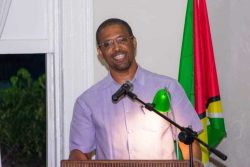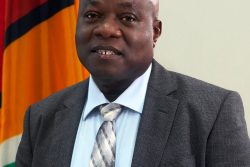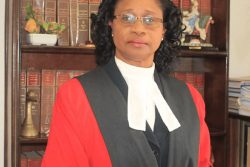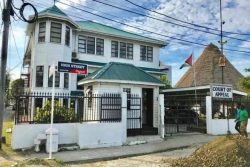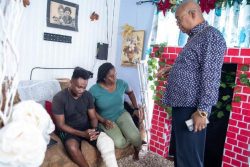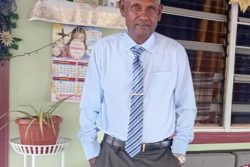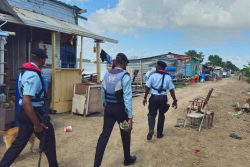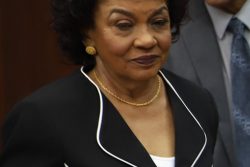Colonial Girls School
for Marlene Smith MacLeish
Borrowed images
willed our skins pale
muffled our laughter
lowered our voices
let out our hems
dekinked our hair
denied our sex in gym tunics and bloomers
harnessed our voices to madrigals
and genteel airs
yoked our minds to declensions in Latin
and the language of Shakespeare
 Told us nothing about ourselves
Told us nothing about ourselves
There was nothing about us at all
How those pale northern eyes and
aristocratic whispers once erased us
How our loudness, our laughter
debased us
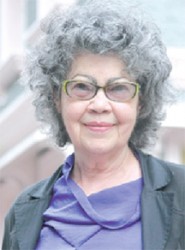
There was nothing left of ourselves
Nothing about us at all
Studying: History ancient and Modern
Kings and queens of England
Steppes of Russia
Wheatfields of Canada
There was nothing of our landscape there
Nothing about us at all
Marcus Garvey turned twice in his grave.
’Thirty eight was a beacon. A flame.
They were talking of desegregation
in Little Rock, Arkansas, Lumumba
and the Congo
We had read Vachel Lindsay’s
vision of the jungle
Feeling nothing about ourselves
There was nothing about us at all
Months, years, a childhood memorizing
Latin declensions
(For our language
– ‘bad talking’ –
detentions)
Finding nothing about us there
Nothing about us at all
So, friend of my childhood years
One day we’ll talk about
How the mirror broke
Who kissed us awake
Who let Anansi from his bag
For isn’t it strange how
northern eyes
in the brighter world before us now
Pale?
Olive Senior
On the international stage a number of important social, cultural and political impacts are commemorated around this period. Last Sunday was International Women’s Day; this weekend will be World Storytelling Day on March 20 and World Poetry Day following immediately on March 21.
Guyana will make its annual contribution to World Storytelling Day with its usual programme on Thursday March 19 at 5 pm at the National Library. One week later on March 26, it will follow with its offerings to World Poetry Day at the same place, and no doubt there will be poems commemorating almost everything, international, Caribbean and local. Such is the nature of poetry—it speaks to everything without bounds or boundaries.
Many poems are relevant to International Women’s Day: to issues concerning women and the affairs of gender; to issues concerning nationhood and the state of Republicanism; and to matters arising from the celebrations and relevance of indigenous culture as in carnival with its riot of Caribbean cultural performance and the contrasting sober and subdued circumspection, the Latin litanies of the Lenten period. These are all the outcomes of a colonial history, the cultural evolutions, postcolonial politics and gender issues that are all addressed by the poetry.
Jamaican poet, prize-winning fiction writer, editor and documentalist Olive Senior is one who has treated them all in her work. She has worked at the UWI, Mona and the Institute of Jamaica and once edited the Jamaica Journal and Social and Economic Studies before rising to be one of the foremost Jamaican and West Indian poets. Her short story collection Summer Lightning won the Commonwealth Writers Prize 1986 and her first novel Dancing Lessons was shortlisted for the Commonwealth Book Prize 2012. Senior also published a number of major works of non-fiction.
One of the important things about Senior’s contribution to West Indian literature is that she was among those new writers prominent in the major forward movement of the literature in the 1970s. Involved in this was women’s literature, not only a substantive rise of women writers but a deepening treatment of women’s issues in a changing society as well as stylistic complexities and formal revolutions that advanced the literature. Among these were feminist concerns, influences of orality and the creole language, post-modernism and post-colonialism.
Senior has been in the frontline of all of those. Her preoccupation with women has been particularly strong, especially the way she treats women within social contexts and the dynamics of the society in which poems and short stories are set. Not only would they interest those with a feminist gaze, but they are fascinating post-colonial works. The poem “Colonial Girls School” is a good example of such work.
It refers to a particular period in the pre-Independence Caribbean touching on the kinds of accepted norms in the colonial society that would become issues questioned with the emergence of social change and cultural consciousness. Her education and socialisation took place in a colonial girls school, and the poet raises questions of not only social conditioning but a conditioning of gender. There was a special quality of girls schools (particularly those with the ‘finishing school’ in mind) in the colonial era which would have conflicted with contemporary feminist consciousness. The poet protests against this as much as against the foreign European education and values and the bleaching out of the local skin, language, culture, history and landscape.
The poem is modernist. The style, the post-colonial quality in it is deep and interesting, with telling use of irony. The poet speaks about an awakening that would have come to the girls long after the thoroughly colonial conditioning.
She speaks of it in terms of the folk tales. “The mirror” broke is reminiscent of the recurring question in the fairy tale: “Mirror, mirror, on the wall/Who is the fairest of them all?” This refers to the socialised belief that beauty resides only in fair skin; a myth that would have been shattered in the self-development, self-discovery and the intrusion of the indigenous (Anansi was let out of his bag).
Interestingly, Rex Nettleford drew from this same fairy tale for the title of his great pioneering work Mirror Mirror: Identity, Race, and Protest in Jamaica in examining identity, race, society and politics in Jamaica.
Senior draws on the fairy tale, which she obviously sees as a part of the colonial education that taught false values and shut out indigenous culture, using it to focus social consciousness. “Who kissed us awake” refers to another story about the sleeping princess recalled to life when she is kissed by a prince. In the poem the “awakening” is not a return to the same fairy tale world in which heroines are rescued by marriage to princes to find their fortunes and everlasting happiness. Here the kissing awake is a jolt out of that world of foreign fantasy in which the girls grew up. It is a realisation that that world is false and contains “nothing about us at all”. Counter to that is Anansi who represents the indigenous folk tale, an element that was not only missing from the colonial girls school, but was frowned upon and vilified.
Females, of course, had an inferior role in that world of patriarchy which confined them the way they were confined in the school. Note Senior’s reference to “denied our sex” in freedom of expression of feminineness in “let out our hems” in addition to being “yoked”, “harnessed” with muffled voices and stifled laughter. It is of note how the poet closely integrates these gender notes with those about social conditioning and the absence of local history, the creole language, local landscape and geography in that education of imitation.
In that way the poet demonstrates what poetry does—focus the concerns of an International Women’s Day, the indigenous cultures such as carnival, nationhood on the anniversary of the Republic, and colonial inheritances all in the same poem.
